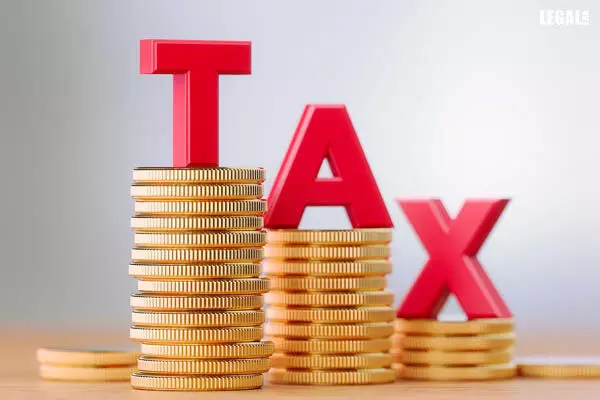- Home
- News
- Articles+
- Aerospace
- Artificial Intelligence
- Agriculture
- Alternate Dispute Resolution
- Arbitration & Mediation
- Banking and Finance
- Bankruptcy
- Book Review
- Bribery & Corruption
- Commercial Litigation
- Competition Law
- Conference Reports
- Consumer Products
- Contract
- Corporate Governance
- Corporate Law
- Covid-19
- Cryptocurrency
- Cybersecurity
- Data Protection
- Defence
- Digital Economy
- E-commerce
- Employment Law
- Energy and Natural Resources
- Entertainment and Sports Law
- Environmental Law
- Environmental, Social, and Governance
- Foreign Direct Investment
- Food and Beverage
- Gaming
- Health Care
- IBC Diaries
- In Focus
- Inclusion & Diversity
- Insurance Law
- Intellectual Property
- International Law
- IP & Tech Era
- Know the Law
- Labour Laws
- Law & Policy and Regulation
- Litigation
- Litigation Funding
- Manufacturing
- Mergers & Acquisitions
- NFTs
- Privacy
- Private Equity
- Project Finance
- Real Estate
- Risk and Compliance
- Student Corner
- Take On Board
- Tax
- Technology Media and Telecom
- Tributes
- Viewpoint
- Zoom In
- Law Firms
- In-House
- Rankings
- E-Magazine
- Legal Era TV
- Events
- Middle East
- Africa
- News
- Articles
- Aerospace
- Artificial Intelligence
- Agriculture
- Alternate Dispute Resolution
- Arbitration & Mediation
- Banking and Finance
- Bankruptcy
- Book Review
- Bribery & Corruption
- Commercial Litigation
- Competition Law
- Conference Reports
- Consumer Products
- Contract
- Corporate Governance
- Corporate Law
- Covid-19
- Cryptocurrency
- Cybersecurity
- Data Protection
- Defence
- Digital Economy
- E-commerce
- Employment Law
- Energy and Natural Resources
- Entertainment and Sports Law
- Environmental Law
- Environmental, Social, and Governance
- Foreign Direct Investment
- Food and Beverage
- Gaming
- Health Care
- IBC Diaries
- In Focus
- Inclusion & Diversity
- Insurance Law
- Intellectual Property
- International Law
- IP & Tech Era
- Know the Law
- Labour Laws
- Law & Policy and Regulation
- Litigation
- Litigation Funding
- Manufacturing
- Mergers & Acquisitions
- NFTs
- Privacy
- Private Equity
- Project Finance
- Real Estate
- Risk and Compliance
- Student Corner
- Take On Board
- Tax
- Technology Media and Telecom
- Tributes
- Viewpoint
- Zoom In
- Law Firms
- In-House
- Rankings
- E-Magazine
- Legal Era TV
- Events
- Middle East
- Africa
Delhi High Court Rules Final Determination Under VSV Act Cannot Be Reopened Via Section 154 Of Income Tax Act

Delhi High Court Rules Final Determination Under VSV Act Cannot Be Reopened Via Section 154 Of Income Tax Act
The Delhi High Court, bench comprising Justices Yashwant Varma and Ravinder Dudeja, has ruled that once a determination by the Designated Authority under the Direct Tax Vivad Se Vishwas Act, 2020 (VsV Act) has been finalized, it cannot be revisited or revised by invoking the rectification powers under Section 154 of the Income Tax Act. This ruling came after the Revenue sought to rectify a settled dispute despite the finality of the settlement under the VsV Act.
The case involved an individual taxpayer who filed a return declaring an income of Rs. 50.31 lakh. The return was processed under Section 143(1), but subsequent scrutiny led to additions of Rs. 54.50 lakh, which were upheld by the CIT(A). During the pendency of an appeal before the ITAT, the taxpayer opted for a settlement under the VsV Act. The Designated Authority determined the payable amount, which the taxpayer paid, and Form 5 was issued, confirming the total liability and finality of the settlement.
However, about a year later, the Assessing Officer (AO) initiated rectification proceedings under Section 154, citing an incorrect tax rate applied in the original assessment. The AO’s rectification order, dated March 30, 2022, was signed and communicated on April 22, 2022, which was deemed outside the permissible period of limitation.
The Bench observed that the rectification power under Section 154 cannot be exercised once a matter has been settled under the VsV Act. Section 4(6) of the VsV Act provides that a determination under the Act has conclusive finality, which does not fall within the scope of Section 154's rectification powers. The High Court emphasized that the rectification power is meant for correcting apparent mistakes in tax returns, not for revisiting settled matters.
The Bench noted that even if Section 154 were applicable, the statutory period for rectification had lapsed. The assessment order could have been rectified only up to March 31, 2022, but the rectification order was communicated after this period.
Furthermore, the Bench pointed out that the AO did not claim that the taxpayer had made any incorrect declarations or failed to disclose material facts. The VsV Act's safeguards ensure that once a settlement is finalized, it cannot be reopened unless there is a claim of incorrect declaration or suppression of facts.
In conclusion, the High Court quashed the rectification order under Section 154 and the associated notices of demand, ruling them unsustainable. The Court allowed the taxpayer's petition, affirming the finality of the settlement under the VsV Act.



